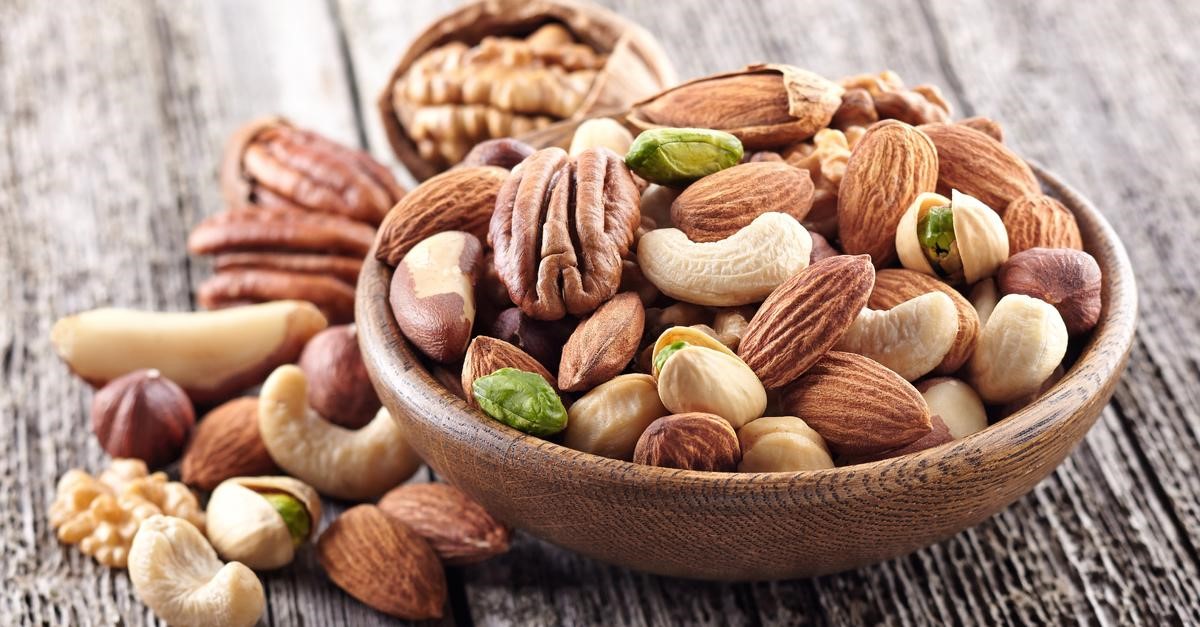Minerals are essential for the normal functioning of the human heart and brain. They play vital roles in the production of several enzymes and hormones.
Minerals can be differentiated by how much they are needed by the body.
- Macrominerals are needed in large amounts. They include calcium, potassium, chloride, phosphorus, sodium and magnesium.
- Trace-minerals are needed in relatively small quantities. They include copper, iron, zinc, selenium, fluoride, chromium, molybdenum, iodine and manganese.
Minerals are present in a vast array of foods. They are however more abundant in specific food types.
- Nuts
Nuts are particularly loaded with minerals especially the likes of selenium, copper, zinc, magnesium, manganese and phosphorus. Nuts are nutrient-dense (i.e. they contain a lot of nutrients).
- Cruciferous vegetables
Cruciferous vegetables include broccoli and cabbage. Due to their high mineral concentration, these vegetables work tirelessly to reduce the risks of chronic disease infections. They are particularly rich in the mineral, sulfur. Sulfur is important for proper cellular function, DNA production, detoxification and glutathione synthesis. Cruciferous vegetables are rich in other minerals such as potassium, manganese, magnesium and calcium.
READ ALSO: Pregnant? What Should Be In Your Diet
- Beans
Apart from its protein and fiber contents, beans also have present in them, impressive amounts of minerals such as iron, potassium, copper, calcium, zinc, magnesium, phosphorus and manganese. To increase the bioavailability of minerals, it is good to always soak or cook them properly.
- Avocados
Avocado is one fruit that cannot go a day without being mentioned. It has surplus health benefits ranging from internal to external body improvements. They are creamy and in fact loaded with mind blowing nutrients. They contain healthy fats, fiber, vitamins and our very dear minerals; especially copper, manganese, potassium and magnesium. Luckily for us, potassium is one mineral that is essentially needed for improving heart health and regulating blood pressure. Going further, studies have shown that a potassium-rich diet can be linked to a 24% decrease in the risk of having stroke and other heart related diseases.
- Tropical fruits
These are fruits types that specifically grow or thrive in tropical/subtropical climates. They include bananas, pineapples, passion fruit, mangoes and guava. In addition to being brilliant sources of minerals, these fruits also contain antioxidants, vitamins and fiber that are essential for healthy living. Tropical fruits will assist in meeting mineral-needs because they are rich in potassium, copper, manganese and magnesium.
The bottom line is that sufficient mineral consumption is key for vitality and overall healthy living.

